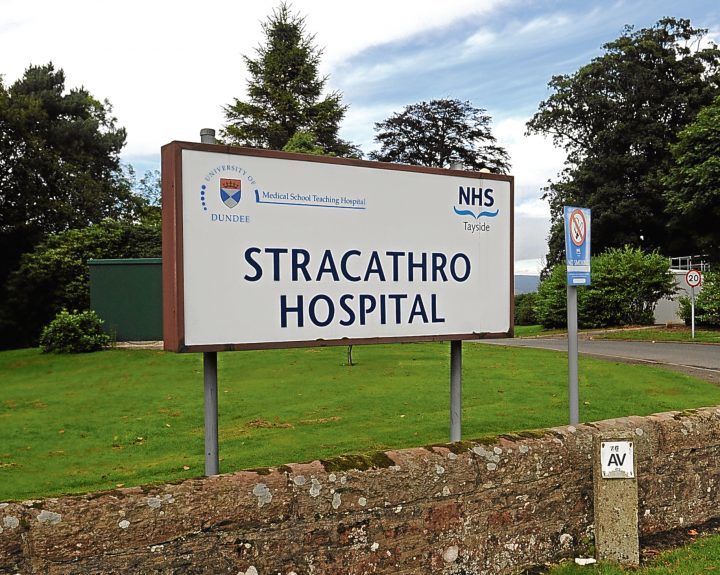The NHS in Tayside has unveiled how it’s faring across a range of services — with a new report showing what targets it’s hitting or missing.
The health board was presented with an update on a series of different topics by bosses including chief executive Lesley McLay, operational medical director Dr Alan Cook and director of acute services Lorna Wiggin.
The report revealed performances in access to services, treatment efficiency, patient safety and complaint handling for the three months between July and September — the most recent months available.
And it showed that targets were not being met for waiting times in different areas.

More than 5,000 patients waited longer than 12 weeks for outpatient appointments that did not require an overnight stay. At one point, 467 patients waited more than the 84-day target before being admitted to hospital for overnight treatment.
The target for both is zero patients. However 98.4% of patients admitted to A&E across Tayside were seen within the national target time of four hours, above the target percentage of 95% and the best performance of any health board in Scotland.
Elsewhere targets for cancer care were also missed. Dr Cook told the Tele that “a number of factors”, including staff shortages, were to blame for the mixed performances.
He added: “NHS Tayside continues to invest resources to ensure that as many patients as possible are seen within 84 days for inpatient elective treatment, 12 weeks for outpatients and 31/62 days for cancer diagnosis and treatment.
“Waiting times are reviewed on a regular basis across all services with a focus on identifying opportunities to improve performance.”
Elsewhere there were better results for mental health and drug and alcohol services with referral targets all on track.

In September this year, 99.1% of all children and adults referred to mental health services were treated within the 18-week target.
Meanwhile 93.3% of psychological therapy patients were treated within the same target window, and 93.4% of all drug and alcohol clients were seen within their three-week target.
Elsewhere, despite a drop in performance, the number of patients seen for same-day surgery as planned remained on target. However, delayed discharges rose from 51 in a single day in July to 85 in September.
Dr Cook said: “The health and social care partnerships are involved with NHS Tayside and Perth and Kinross, Dundee and Angus councils who are working actively together to minimise the number of patients whose discharge is delayed.”
Emergency re-admissions within 28 days of being discharged were also failing to meet expectations.
The equivalent of 135.8 in every 10,000 patients were re-admitted to hospital within 28 days — 17.3% above an expected benchmark.
However both Ninewells and Perth Royal Infirmary were found to be making progress with their mortality rates — but Stracathro Hospital, by Brechin, was found to be slipping.

Dr Cook said: “NHS Tayside regularly reviews re-admissions to identify factors that may be influencing performance.”
On non-medical matters, bosses found that while the health board was responding well to complaints, it was not addressing them quickly enough.
Although almost all received an acknowledgement within three days, less than half were formally responded to within 20 days, well below the national benchmark of 68.5%.
Dr Cook said a “refresh” of NHS Tayside’s complaints process was under way.